Vicksburg Campaign: Unvexing the Father of Waters

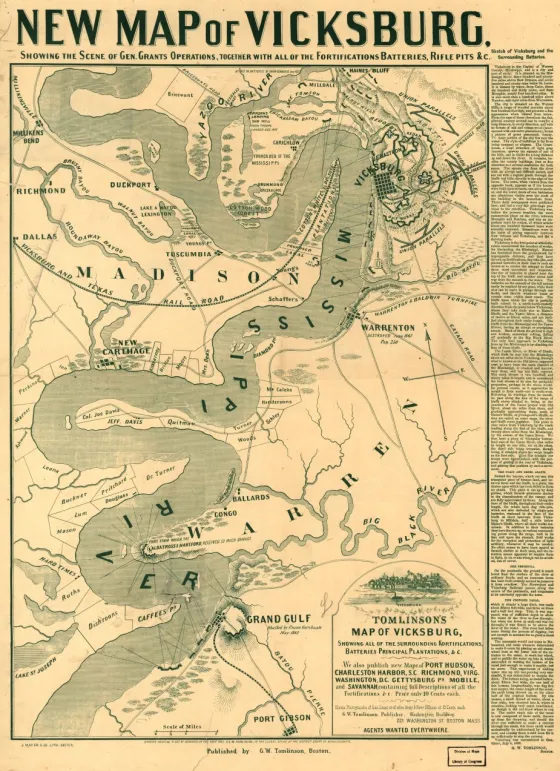
Biographer Lloyd Lewis accurately portrays the Mississippi River in the mid-nineteenth century as "the spinal column of America." He refers to the great river as "the trunk of the American tree, with limbs and branches reaching to the Alleghenies, the Canadian border, the Rocky Mountains." For more than two thousand miles the river flowed silently on its course to the sea, providing a natural artery of commerce. Vessels of all descriptions, heavily laden with the rich agricultural produce of the land, glided along the Mississippi's muddy waters en route to world markets. Indeed, the silent water of the mighty river was the single-most important economic feature of the continent, the very lifeblood of America. One contemporary wrote emphatically, "The Valley of the Mississippi is America."
Upon the secession of the Southern states — and in particular Louisiana and Mississippi — the river was closed to unfettered navigation, which threatened to strangle Northern commercial interests. With the advent of civil war, President Abraham Lincoln gathered his civil and military leaders to discuss strategy for opening the Mississippi River and ending what he termed a "rebellion" in the southern states. Examining a map of the nation, Lincoln made a wide sweeping gesture with his hand then placed his finger on the map and said, "See what a lot of land these fellows hold, of which Vicksburg is the key. The war can never be brought to a close until that key is in our pocket." It was the president's contention that, "We can take all the northern ports of the Confederacy, and they can defy us from Vicksburg. It means hog and hominy without limit, fresh troops from all the states of the far South, and a cotton country where they can raise the staple without interference." Lincoln assured his listeners that, "I am acquainted with that region and know what I am talking about, and, as valuable as New Orleans will be to us, Vicksburg will be more so."
These powerful statements from the sixteenth president were no exaggeration. Confederate cannon mounted along the bluffs commanding the Mississippi River at Vicksburg were trained on the river, denying that important avenue of commerce to Northern shipping. It is important to further note that Vicksburg was also the connecting link between the eastern and western parts of the Confederacy, what Jefferson Davis referred to as "the nailhead that held the South's two halves together." In addition, the city sat astride a major Confederate supply route over which the armies of Braxton Bragg and Robert E. Lee received much-needed food, clothing, medicine, and ammunition, as well as fresh troops.
It was imperative for the administration in Washington to regain control of the lower Mississippi River, thereby reopening that avenue of commerce. It would also split the Confederacy in two, sever that vital supply route, achieve a major objective of the Anaconda Plan (the Union's overall strategic plan for the defeat of the Confederacy), and effectively seal the doom of Richmond.
Prominent military men of the time understood the significance of the Mississippi River, and Vicksburg in particular. William T. Sherman, a man destined to play a vital role in the military operations that centered on Vicksburg, wrote, "The Mississippi, source and mouth, must be controlled by one government." So firm was his belief that Sherman stated, "To secure the safety of the navigation of the Mississippi River I would slay millions. On that point I am not only insane, but mad." General-in-Chief Henry W. Halleck wrote in similar, albeit less eloquent terms, "In my opinion, the opening of the Mississippi River will be to us of more advantage than the capture of forty Richmonds." And finally, Confederate President Jefferson Davis, in writing to Lieutenant General John C. Pemberton after the fall of Vicksburg, stated his view, "I thought and still think you did right to risk an army for the purpose of keeping command of even a section of the Mississippi River. Had you succeeded, none would have blamed, had you not made the attempt few would have defended your course."
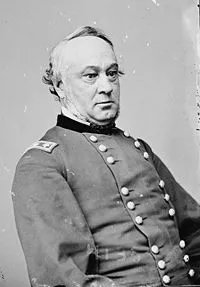
Eager to confront the difficult task before them, Union land and naval forces moved with a vengeance from two directions in a converging attack to wrestle control of the river from Confederate troops. Driving south from Cairo, Illinois, Federal forces seized Forts Henry and Donelson on the Tennessee and Cumberland rivers respectively and opened the pathway of invasion to the Deep South. Continuing the drive, Union forces gained victory at Shiloh in April, Corinth in May, and having forced the surrender of Island No. 10, seized Memphis in June.
Moving upriver from the Gulf of Mexico were the ships of the West Gulf Blockading Squadron commanded by Flag Officer David Glasgow Farragut. His ships bombarded and passed Forts Jackson and St. Philip on April 24 and compelled the surrender of New Orleans. With initial success behind him, Farragut sent an advance flotilla upriver. Baton Rouge fell to the Federals on May 8, Natchez four days later, and the flotilla steamed on toward Vicksburg.
After the fall of New Orleans, as the Union pincer slowly closed along the river, the Confederates began to fortify Vicksburg. The city's geographical location made it ideal for defense. Equally important, existing rail lines which connected Vicksburg with Jackson and, via Jackson, points elsewhere in the Confederacy, enabled the shipment of heavy ordnance to the "Hill City:" It was not long before Vicksburg became known as the "Gibraltar of the Confederacy," and it would prove a tough nut to crack. The strategic significance of Vicksburg greatly increased after the fall of Memphis, as it then became the northernmost point below Memphis where the bluffs met the river. It was only a matter of time before war in all its horror centered on Vicksburg.
Initial efforts by Union land and naval forces to capture Vicksburg and open the great waterway to navigation ended in failure. The first threat developed on May 18, 1862, when the ships of the West Gulf Blockading Squadron arrived below Vicksburg and the Federals made a demand for the city's surrender. In terse words the demand was refused. Lieutenant Colonel James L. Autry, the post commander, replied, "Mississippians don't know, and refuse to learn, how to surrender to an enemy." Incensed, Federal authorities opened fire upon the city and maintained an intermittent bombardment from late May, all through June, and into late July, but to no avail. The bombardment was ineffective and Farragut's fleet, wracked with sickness and plagued by rapidly falling waters, withdrew to New Orleans and deeper waters.
Both the Union and Confederate high commands then realized that if Vicksburg were going to fall it would be at the hands of a combined land and naval effort. The batteries that overlooked the Mississippi River at Vicksburg were powerful, but all the land accesses were open. The Confederates decided to construct a line of defense to guard the city's landward approaches and control the roads and railroad access to Vicksburg. Due to a series of sharp narrow ridges, fronted by deep steep ravines, Vicksburg was a natural fortress. Major Samuel Lockett, chief engineer of the Department of Mississippi and East Louisiana, made it even stronger by the construction of field fortifications. The line, as constructed, consisted of nine major forts connected by a continuous line of trenches and rifle pits. The line formed a huge semicircle around Vicksburg, the flanks of which rested on the river above and below the city. It would be manned by a garrison of 30,000 troops, mount 172 big guns, and pose the major challenge to Union domination of the river.
Late that same year, a two-pronged Federal advance on Vicksburg met with disaster when Major General Ulysses S. Grant, commander of the Union Army of the Tennessee, divided his force in two for an advance on Vicksburg. One column, under Grant's personal command, marched overland from Grand Junction, Tennessee, into north Mississippi, while the other column, under Major General William T Sherman, made a rapid push down the Mississippi River and attempted to seize Vicksburg.
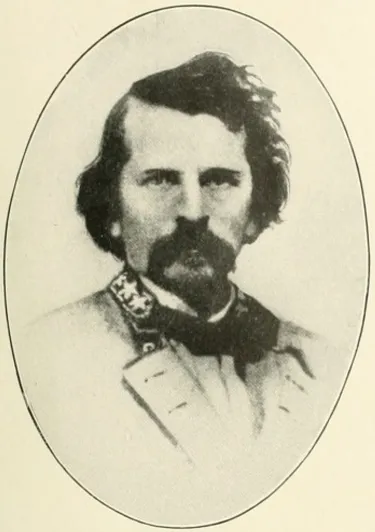
As Grant's column pushed south through Holly Springs and Oxford toward Grenada, his ever-lengthening supply and communications line became dangerously exposed and fell prey to raiding Confederate cavalry under Nathan Bedford Forrest. His advance base at Holly Springs also fell victim to raiding cavalry under Earl Van Dorn, which compelled Grant to pull back to Memphis. This regression enabled Confederate forces, utilizing interior rail lines, to rush to Vicksburg, arriving in time to thwart Sherman's strike just northeast of the city along the banks of Chickasaw Bayou. In reporting the action, Sherman simply wrote, "I reached Vicksburg at the time appointed, landed, assaulted and failed."
Checked on the overland route, Grant seized upon Federal naval supremacy on the inland waters to transfer his army to Milliken's Bend and Young's Point, Louisiana, on the Mississippi River just north of and opposite Vicksburg. During the winter months, Federal forces stockpiled tremendous quantities of rations, clothing, medicine, ammunition, and countless other items for the spring campaign aimed at Vicksburg. Grant also orchestrated a series of ill-fated bayou expeditions, the object of which was to reach the rear of Vicksburg.
By late spring 1863, after months of frustration and failure, Grant was at a crossroads in his military career. There was tremendous clamor in the Northern press to remove him from command. Even members of the Cabinet urged Lincoln to replace Grant as commander of the western army. But the President responded to those critical of Grant by saying, "I can't spare this man, he fights. I'll try him a little longer." Aware of the clamor against him, Grant examined his options.
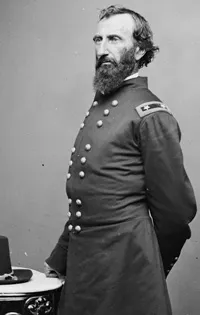
In Grant's mind the most viable option was to march the army down the west side of the river, search for a favorable crossing point, and transfer the field of operations to the area south and east of Vicksburg. In characteristic fashion and with grim determination, Grant ordered Major General John A. McClernand of the Thirteenth Corps to open a road from Milliken's Bend to New Carthage on the Mississippi River below Vicksburg. The movement began on March 31, 1863, and thus the Vicksburg Campaign began in earnest.
As Grant's infantrymen slogged their way south through Louisiana, corduroying roads and building bridges each step of the way, the Union fleet commanded by Rear Admiral David Dixon Porter prepared to run by the batteries at Vicksburg. On the dark, moonless night of April 16, Porter's vessels raised anchor and moved downriver toward the citadel of Vicksburg with engines muffled and running lights extinguished. Suddenly the night sky was ablaze from bales of cotton soaked in turpentine that lined the river on both banks and barrels of tar set afire by the Confederates to illuminate the river and silhouette the fleet as it passed the batteries. For several hours the fleet withstood the punishing fire that poured forth from Confederate batteries. When the shelling stopped, Porter tallied the damage to his fleet and recorded the loss of only one transport vessel. What many deemed impossible had been achieved. With Porter's fleet now below Vicksburg, Grant had the wherewithal to cross the mighty river.
It was Grant's intention to force a crossing of the river at Grand Gulf where there was a good all-weather landing and from which point roads radiated deep into the interior of Mississippi. Two forts guarded Grand Gulf and posed an obstacle to Federal plans. On April 29, Porter's gunboats bombarded the Grand Gulf defenses in preparation for a landing by Grant's troops. The fleet silenced the guns of Fort Wade, but could not silence those of Fort Cobun.

Ever adaptive, Grant disembarked his men from the transports and marched them five miles farther down the levee. That evening, Porter's fleet passed the Confederate batteries and joined with Grant at Disharoon's plantation. From April 30 to May 1 Grant hurled his army across the mighty river and onto Mississippi soil at Bruinsburg. A band aboard the flagship Benton struck up The Red, White, and Blue as Grant's infantrymen came ashore. In one of the largest amphibious operations in American history up to that time, Grant landed 22,000 men and began the inland campaign to capture Vicksburg.
Once ashore, Grant's forces pushed rapidly inland and marched through the night. In the early morning hours of May 1, they encountered Confederate resistance west of Port Gibson. In a furious battle which raged throughout the day, Union soldiers fought with grim determination to secure their beachhead on Mississippi soil while Confederate soldiers fought with equal determination to drive the invaders into the river. By day's end, the Confederate forces, outnumbered and hard-pressed, retired from the field.
Rather than march north on Vicksburg, Grant directed his army in a northeasterly direction in order to cut the rail line that connected the Hill City with Jackson and cut the Confederate garrison off from supplies and reinforcements. In a seventeen-day period, which is often referred to as the blitzkrieg of the Vicksburg Campaign, Grant's army marched more than 200 miles, and overcame Confederate resistance in five battles. The first battle occurred at Port Gibson on May 1, the second at Raymond on May 12, and the third on May 14 when the Union army captured the capital of Mississippi. Not wishing to waste combat troops on occupation, Grant neutralized Jackson with the torch then turned west toward his objective — Vicksburg. En route from Jackson to Vicksburg, his force inflicted devastating casualties on the Confederate army commanded by Lieutenant General John C. Pemberton at the Battle of Champion Hill on May 16. On the following day, May 17, Grant soundly defeated Confederate forces in a battle at the Big Black River Bridge, hurling Pemberton's army into the defenses of Vicksburg.
Having witnessed the debacle at the Big Black River and the wild flight of his troops, Pemberton dejectedly stated, "Just thirty years ago I began my military career by receiving my appointment to a cadetship at the U.S. Military Academy, and to-day — that same date — that career is ended in disaster and disgrace." For all practical purpose it was, but it was a disaster that would affect an entire nation.
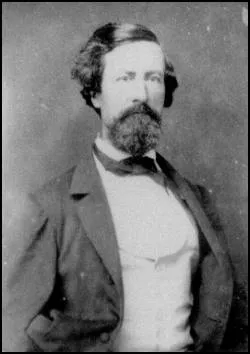
The citizens of Vicksburg watched in fear as the shattered remnants of Pemberton's army poured into the city on that fateful day. Mrs. Emma Balfour stood in her doorway as the demoralized mass of humanity filled the streets. She later wrote with trepidation, "I hope never to witness again such a scene as the return of our routed army!" With pen in hand she recorded the scene which enveloped her, "From twelve o'clock until late in the night the streets and roads were jammed with wagons, cannons, horses, men, mules, stock, sheep, everything you can imagine that appertains to an army being brought hurriedly within the intrenchment." She confided to her diary the fears of many in Vicksburg as she wrote, "What is to become of all the living things in this place...shut up as in a trap...God only knows."
On through the long day and into the evening marched the weary soldiers clad in butternut and gray. Singly or in small groups, with no sense of order or discipline, the men filed into the rifle-pits and turned to meet Grant's rapidly approaching army. Throughout the night, axes rang out constantly as the Confederates felled additional trees to strengthen fortifications, clear fields of fire, and form abatis in their front. Work continued at a feverish pace and, by sunrise, the city was in a good state of defense.
Late in the afternoon, May 18, Confederate soldiers peering over their parapets spotted long columns of Union infantrymen moving slowly toward the city. Federal skirmishers were quickly deployed and artillery roared into action, but the day wore away with nothing more than a long-range artillery duel. That night, as darkness enveloped the fields, the soldiers of both armies rested on their arms. Each knew that the bloody work at hand would commence with the rising sun and prepared for battle in his own way.
Grant was anxious for a quick victory and, after making a hasty reconnaissance, ordered an attack. Early on the morning of May 19, Union artillery opened fire upon the city and for hours bombarded the Confederate works with solid shot and shell. At 2 p.m., when the guns fell silent, Union soldiers deployed into line of battle astride Graveyard Road, northeast of Vicksburg, and stormed the city's defenses. They succeeded in planting several stands of colors on the parapets of Vicksburg, but were driven back with the loss of 942 men.
Undaunted, Grant decided to make a more thorough reconnaissance, then hurl his entire force against Vicksburg on May 22. Early that morning, Union artillery roared into action and for four hours bombarded the works, tearing large holes in the earthen fortifications. At 10 a.m., the artillery fell silent and Union soldiers moved forward over a three-mile front toward the defenses of Vicksburg. Again they succeeded in planting their colors on the parapets of Vicksburg in several areas and made a short-lived penetration at Railroad Redoubt, but were driven back a second time with severe loss. In the assault on May 22, Grant lost more than 3,000 men killed, wounded, or missing.
Although his nose had been bloodied a second time, Grant was not yet willing to toss in the towel and lay siege to the city. As he contemplated his next move, Grant left behind his dead and wounded, including many who had been lying exposed since May 19. Exposed to the sun and heat, the bodies of the dead began to bloat and turn black; the stench was sickening. On May 25, white flags appeared along the Confederate line Union soldiers were hopeful that the city would soon be surrendered. Theft hopes were dashed as word quickly spread that a note was passed from Pemberton to Grant "imploring in the name of humanity" that Grant bury his dead as the odor had become quite offensive.

A truce was granted for two and one-half hours during which time men in blue and gray mingled between the lines. While the gruesome task of the burial details was completed, it was almost as if there was no war in progress. At the appointed time, however, the flags were taken down and everyone ran for cover. The siege of Vicksburg began in earnest that day.
Throughout the month of May and into June, Union soldiers slowly extended their lines to the left and right until they encircled the beleaguered city, effectively cutting Pemberton's garrison off from all supply and communications with the outside word. The Confederates had to subsist solely on what they had stockpiled in Vicksburg prior to the siege. In order to conserve what food supplies were on hand, Pemberton ordered the daily ration cut to three quarters, then to half, then to quarter, then they were cut again, and yet again. By the end of June the garrison was issued only a handful of peas and rice per man per day. Even their water was rationed.
Disease began to spread rapidly through the ranks. Dysentery, diarrhea, malaria, and various fevers all took a heavy toll of human life and were more certain causes of death than were Union sharpshooters. At first scores, then hundreds, of men could be seen laying their weapons aside to walk or crawl as best they could to the hospitals in Vicksburg. Public buildings were filled to capacity; many fine private residences were convened to hospitals. But even there, there was no succor as medicines were in short supply. Each day the "dead wagons" made the rounds of the hospitals and the dead were brought out in ever increasing number and carried to their long rest north of town in the city cemetery.
As May slowly faded into June, Union soldiers began to dig approaches toward the Confederate line. Forming first zigzag trenches to frustrate enemy fire and then parallels, Grant moved up his infantry and artillery first to within 300 yards, then 200 yards, then 100 yards. The digging continued as Union soldiers worked their way up to the parapets of Vicksburg. Their object was to get as close as possible, then tunnel underneath the enemy works, hollow out rooms, fill them with black powder, and blow them up, hopefully destroying the fortifications of Vicksburg. Union soldiers excavated thirteen approaches at different points along the siege line; the most successful of which was known as "Logan's Approach." Situated along the Jackson road, Logan's Approach inched forward toward the Third Louisiana Redan. Excavating a sap (or trench if you will) that was seven feet deep and eight feet wide, Union fatigue parties reached the Third Louisiana Redan on June 23. They carved a gallery directly under the fort and made preparations for mining.
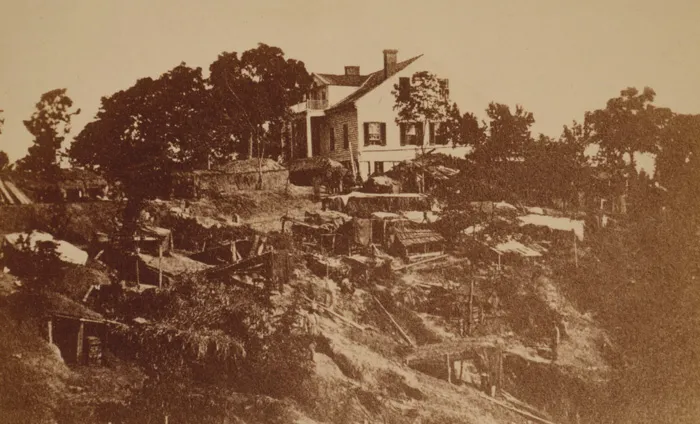
On June 25, 2,200 pounds of black powder were placed in the mine. At 3 p.m. the fuse was lit. Tense moments passed as the Federals waited to storm into the breach and seize Vicksburg. Suddenly there was a muffled thud, then a loud bang as the ground began to break and an enormous column of flame and dirt exploded upwards, carrying men, mules, and accoutrements to the sky. Before the dust could even settle, Union soldiers poured into the crater and attempted to secure the breach. In the wild mêlée that ensued, the men freely used clubbed muskets and bayonets and tossed hand grenades back and forth. The battle raged in unabated fury for twenty-six hours as Grant threw in one fresh regiment after another, all to no avail. The breach was sealed by the Confederates at the point of bayonet. The great gamble had failed.
Undaunted, the Federals planted a second mine and detonated it on July 1— but they did not follow it up with an infantry assault. That day, Grant was notified by his subordinates that given just a few more days of digging, thirteen mines could be planted and detonated simultaneously. This was the moment Grant and his army had been working toward all these many weeks of siege. It is not likely that the Confederates could have withstood such an attack.
On the hot afternoon of July 3 Grant was in the process of planning an attack (which he scheduled for July 6), when white flags of truce again appeared along the lines. Riding out from the city came a cavalcade of officers in gray led by General Pemberton. Grant rode to meet with him between the lines. Pemberton asked Grant on what terms would he receive the surrender of the garrison and city of Vicksburg. Grant replied that he had no terms other than immediate and unconditional surrender. These terms were unacceptable to Pemberton who assured Grant that he would bury many more of his men before he gained entrance to Vicksburg. The generals agreed only upon a cessation of hostilities, then rode their separate ways. Grant assured Pemberton that he would have his final terms by ten o'clock that night.
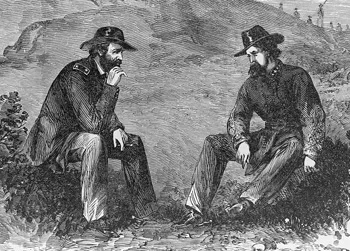
True to his word, Grant sent in his final, amended terms. Instead of an unconditional surrender of Vicksburg, Grant offered parole to the garrison. Pemberton received the note in the quiet of his headquarters. In the company of his generals, Pemberton read the note then passed it around for his subordinates to read and comment upon. Almost to a man, these agreed they were the best terms to be had.
On the morning of July 4, 1863, white flags fluttered in the breeze above the fortifications of Vicksburg. Marching out from their works, Confederate soldiers furled their flags, stacked their arms, and turned over their accouterments. A victorious Union army marched in and took possession of Vicksburg — the fortress city on the Mississippi River that had eluded them for so long.
Grant rode into the city along the Jackson Road and down to the Warren County Courthouse where he watched the Stars and Stripes raised above the building. He then rode down to the waterfront where he personally thanked and congratulated Admiral Porter for the assistance rendered by the United States Navy during the operations for Vicksburg. Almost as an afterthought, he sent a message to Washington informing President Lincoln of the city's surrender. It took several days for the message to reach the capital during which time the only remaining Confederate bastion on the Mississippi River — Port Hudson, Louisiana — fell into Union hands. Upon receipt of Grant's message, Lincoln sighed, "Thank God," and declared "The Father of Waters again goes unvexed to the sea."
Learn More: The Vicksburg Campaign





